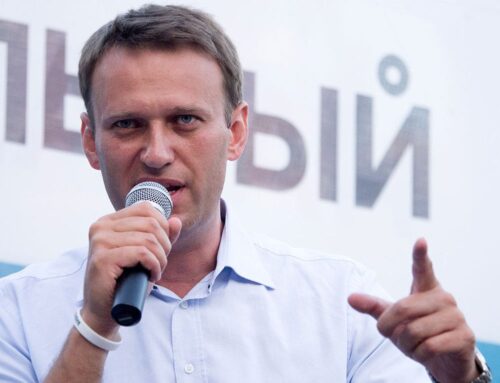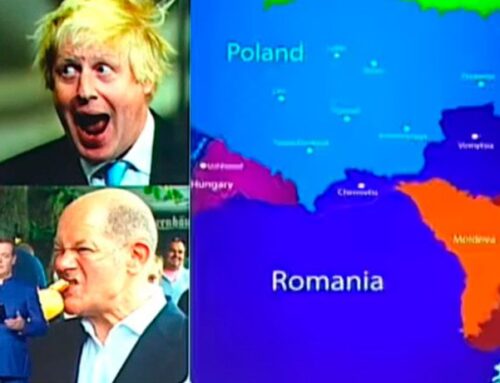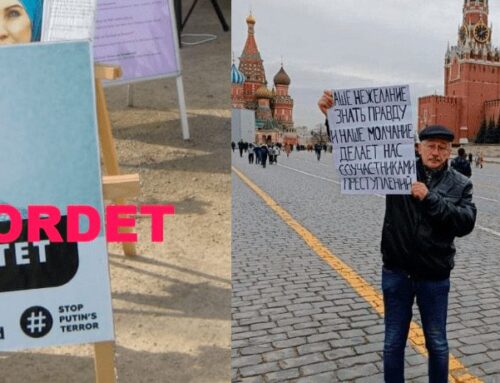Monitoring the case of Taha Bouhafs, 10th March 2021

On the 10th of March 2021, a trial was held in the 11th chamber of the Creteil judicial court, regarding the case of Taha Bouhafs, a French-Algerian journalist, accused of contempt and rebellion against a citizen depositary of a public authority, by Maxime Demaire, a policeman.
Rebellion is prosecuted based on article 433-6 of the Penal Code. It defines rebellion as the act of violently resisting a person in authority or in charge of a public service mission acting, in the exercise of his functions, for the execution of laws, orders of the public authority, decisions or mandates of justice. Contempt is prosecuted based on article 433-5 of the Penal Code. It punishes words, gestures or threats, writings or images of any kind that are not made public or the sending of any object whatsoever addressed to a person entrusted with a public service mission, in the exercise or on the occasion of the exercise of his mission, and of such a nature as to undermine his dignity or the respect due to the function with which he is entrusted. When it is addressed to a person in authority, contempt is punishable by one year’s imprisonment and a fine of 15,000 euros.
The prosecuted facts happened on 11th June 2019, during a demonstration of undocumented workers in front of the Chronopost company in Alfortville. Taha Bouhafs, who was covering the demonstration, was arrested and placed in custody after an incident with a police officer. During the arrest, the journalist was injured on the shoulder, which resulted in 10 days of complete incapacity to work. The police officer filed a complaint for contempt and rebellion: he asserts that Taha Bouhafs called him a “scum cop”, and that he resisted during his arrest. The plaintiff and his lawyer requested 2500 euros in damages for the moral prejudice.
The first hearing was held on the 8th of January, but was postponed after the filing of a priority question of constitutionality by the defense counsel. The “priority question of constitutionality” is the right recognized to any person who is a party to a trial or proceeding to argue that a legislative provision infringes the rights and freedoms that the Constitution guarantees. If the conditions of admissibility of the question are met, it is up to the Constitutional Council, seized on referral by the Council of State or the Court of Cassation, to give a ruling and, if necessary, to repeal the legislative provision. The priority question of constitutionality may be raised in the course of any proceedings before a court of the judicial order or of the administrative order, whatever the nature of the dispute. It is not possible to refer the matter directly to the Constitutional Council. The priority question of constitutionality must always be raised in the course of a trial. The court of first instance must carry out an initial examination. It examines whether the question is admissible and whether the criteria set by the organic law have been met. If these conditions are met, the court to which the question has been referred shall transmit the priority question of constitutionality to the Council of State or the Court of Cassation.
The defense lawyer filed a question regarding the “breach of equality between a police officer and those who may be victims of police violence” that would be caused by the “link” between the prosecution and the police. But the court rejected the question as they judged that it was not a question of a serious enough nature.
The hearing then continued with the development of the grounds for nullity presented by the defence, the correctional tribunal being competent to certify any nullity of procedure that has been presented before him.
The defence lawyer argued nullity on several different points. First of all, on the flagrante investigation based on article 53 of the Code of Criminal Procedure. Under this article, a flagrante investigation can be conducted if a flagrant offence has been committed. A flagrant offence is an offence that is characterized by a certain seriousness and by its flagrant commission. However, the flagrante investigation must respect certain conditions. In this instance, the defence argued nullity based on the fact that the prosecuted words had never been pronounced. He asked the judges to establish ab initio the fact that the flagrante investigation had no reason to exist.
Second of all, the defence lawyer argued nullity on the fact that Taha Bouhafs had been handcuffed. According to the lawyer, Article 803 of the Code of Criminal Procedure provides that only dangerous or flight-prone persons may be restrained. The lawyer asks for the invalidation of the handcuffing and of the whole arrest.
Furthermore, his third development for nullity concerns the late notification of the defendant’s rights: Taha Bouhafs had to wait 30 minutes at the police station before being taken to the hospital. During that time, he was not informed of the reason for his arrest, nor of his right to a doctor and his right to a lawyer. The defence lawyer requested the invalidation of the custody.
Finally, the defendant’s lawyer denounced the irregularity of the referral to the judicial court, arguing that the summons of Taha Bouhafs did not have the mention of the fact that the plaintiff was a policeman, because the term “person in charge of the public authority “ could refer to someone other than a policeman. He also repeated the elements of his priority question of constitutionality: he explained that the prosecutor is the “director of the judiciary police” under article 39-3 of the criminal procedure code, and that consequently, the prosecutor cannot “examine inculpatory and exculpatory evidence“ in cases of police brutality.
After the observations of the prosecutor, who asked for the dismissal of motions for nullity, the judges decided to move forward on the debates conducted by the president of the tribunal.
The audience continued with the viewing of videos filmed by Taha Bouhafs and by witnesses of the scene. After the viewing, the accused and the plaintiff were able to make observations, and were questioned by the lawyer of the plaintiff and the defence lawyer. The president of the tribunal also intervened and asked questions to both the plaintiff and the accused.
During the questioning of the plaintiff by the defence lawyer, after answering to some questions, the plaintiff used his right to remain silent. The defence lawyer asked to be able to keep asking questions even though the plaintiff would not answer anymore, and the president of the tribunal accepted his request. The plaintiff lawyer and defence lawyer then made their plea, as well as the prosecutor.
This case takes place in a context of very strong media coverage of police brutality. The viewing of the videos made by the accused and the witnesses also refers to the very controversial article 24 of the new draft bill entitled “Global Security”. Indeed, article 24 would put into place a condemnation of one year in prison and a 45,000 euro fine for anyone who diffuses recordings for malicious purposes, especially on social networks, if it is established that those records harm the physical or psychological integrity of a police officer. This article is strongly criticized, especially because it could affect the freedom of the press and create room for arbitrariness.
Article 3 of the European Convention has often been used in cases involving police especially in relation to the use of force. Article 3 prohibits torture and inhumane and degrading treatments or punishments. In the Castellani v France judgment rendered on the 30th April 2020, the Court recalls the application of general principles that constitute criteria regarding the use of force during a questioning. The use of force by police officers during a questioning must be proportionate and absolutely necessary.
In the case Bouyid v Belgium, the Court considered that “in respect of a person who is deprived of his liberty, or, more generally, is confronted with law-enforcement officers, any recourse to physical force which has not been made strictly necessary by his own conduct diminishes human dignity and is, in principle, an infringement of the right set forth in Article 3” (§88, Bouyid v/ Belgium, 28/09/2015)
Article 10 of the European Convention on Human Rights protects freedom of expression and freedom of the press. On the 13th February 2018, the Court rendered a judgment regarding the arrest of a journalist during an anti-globalisation protest in Russia. In this case, the Court found that the Russian government had violated a journalist’s right to freedom of expression by arresting and prosecuting him while he was trying to photograph a demonstration.
This decision allowed the Court to recall the essential character of the gathering of information by a journalist, being an “essential preparatory step in journalist and an inherent, protected part of press freedom” (§123, Butkevich v. Russia, ECHR, 13/02/2018) The Court also noted that “any attempt to remove journalists from the scene of demonstrations must be subject to “strict scrutiny”, including measures “such as prosecution for an alleged offence in relation to a demonstration.” (§130)
This judgment highlights the protection of journalists covering demonstrations. It also can be viewed as an «evolution» of the Court’s oppinion, since the case of Pentikäinen v. Finland, in which the Court held that Finland did not violate Article 10 of the European Convention on Human Rights (ECHR) when police arrested a photojournalist who ignored police orders to leave a violent demonstration. (Pentikäinen v/ Finland, ECHR, 04/02/2014). In this case, the Court said that “the restrictions on the applicant’s freedom of expression were justified.” (§52) and that “The conduct sanctioned by the criminal conviction was not his journalistic activity as such, but his refusal to comply with a police order at the very end of the demonstration” (§49)
During the monitoring of the trial, no violations were recorded. The case has been put up for deliberation and the ruling will be given on 11th May 2021.








Leave A Comment